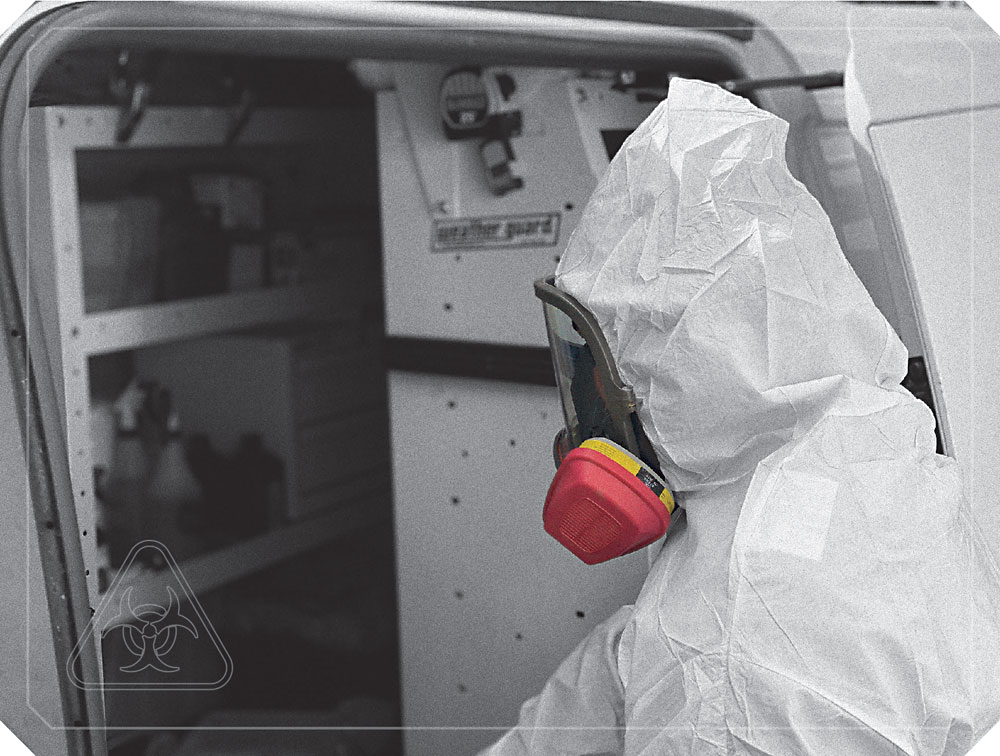Cleaning Up After Death Is No Easy Job
When police leave, they show up
By Benton Graham, Fri., Oct. 11, 2024
After the bodies are removed, the remnants of a homicide or suicide linger. Somebody has to clean the bodily fluids, disinfect the contaminated surfaces, and remove what cannot be salvaged. In Austin, that somebody is often the team at BioTechs.
San Antonio-based BioTechs is a family business of sorts. It was originally founded by a former police officer in San Antonio named Rafael “Trini” Trinidad and his wife Audrey. The Austin franchise is run by Audrey’s sister-in-law Lauren and his brother Ruben.
The company has put its services to use in the aftermath of homicides ranging from a shooting at a corner store to the Sutherland Springs shooting that left 26 churchgoers dead to the Arboretum shooting in August 2023. Lauren Garcia, the co-owner of the Austin franchise, said BioTechs treats high-profile killings the same as any other case.
“I would say, really, just try to be as discreet as possible, try to get the situation remediated as quickly as possible, so that it’s not bringing more attention to something that’s already a traumatic situation for everybody,” she said.
And what does their work actually look like? Before going on-site, BioTechs contacts the Austin Police Department’s homicide unit to make sure the scene has been released. Garcia noted that they wait for the police to finish their work, so they don’t mess with any evidence. By the time the BioTechs team gets to work, the body has been removed. Garcia said they are mostly cleaning up bodily fluids, which are considered a biohazard. Any contaminated items are treated as biomedical waste and go through incineration.
While mass killings like Sutherland Springs and the Arboretum shooting might be their most notorious jobs, suicides are their most common jobs. With suicides, the bodies sometimes aren’t immediately found. The many different methods of suicide also make every situation a little bit different, Garcia said.
She noted a particularly traumatic job where a person had died of suicide by gunshot and fallen against their bedroom door. The difficulty of moving him still permeated the atmosphere when the BioTechs crew arrived. The entire room needed to be remediated (cleaned to a point that it’s safe to enter), but Garcia said the family was touched by the work her team did to clean the room.
Garcia acknowledges that the job isn’t for everyone and said the company looks to hire people who can handle traumatic situations, like firefighters. They’ll show job candidates photos of where a person died or a scene with a lot of blood to see how they might handle certain situations.
Garcia herself isn’t squeamish and said that she’s “on every scene.” She said she does her best to support her clients without getting too involved. She centers their needs, instead of spending too much time considering the morbid nature of her work.
“What I really get out of this is helping people in their time of need, so that is probably my coping skill,” she said. “Not being the one directly affected by the situation, I can go in and see this without it directly affecting me like it would them.”










